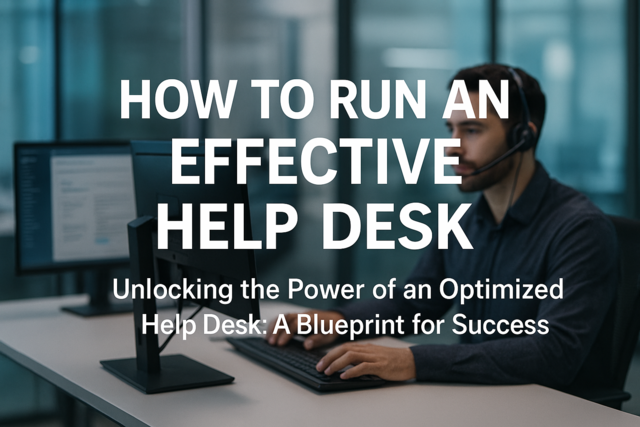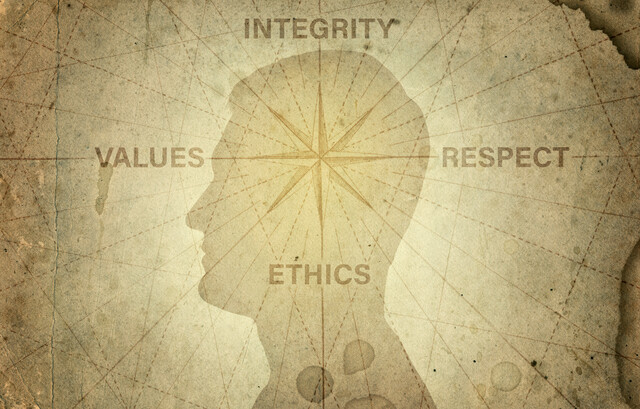Facebook, Twitter, LinkedIn, Google Plus+, Instagram, Tumblr, and many new evolving forms of Social media are becoming an integral part of daily lives. Social media is also becoming an increasingly necessary component of your professional networking.
It is important to remember in our cyber world that any e-mail, comment, post, blog, or picture can remain on the Internet "for eternity." It will always remain in some form or fashion. Your focus should be on ensuring that your social media networking works for you, and not against you. Employers have become more aware of the impact individuals in their company can have on the image of their company. One wrong post, comment, or inappropriate picture can be devastating for a company and take significant time to rebuild credibility.
The same holds true for your professional image, so proper social media etiquette should be an important part of your professional portfolio. It is important for you to apply good social media technology to meet your networking needs, and improve your professional visibility, without damaging your reputation and actually diminishing your professional image.
We find Americans are increasingly tied to social media -- even on the go. There are numerous studies on anxieties related to social media and smart phone usage. There are even stories of people who become so addicted to social media that they check their smart phones every few minutes to post information or read others information. Many smart phone users feel irritable and out of control of their lives without their smart phones. We have come to rely on them in so many ways. Many places you go today, even at stoplights, when you look to your left and right you see people on their phones or texting. Not saying it is legal or a good idea for safety, but it does occur at a greater level than a conscientious driver would want to see it happen.
A day for a typical worker using a smart phone in the U.S. may start with a review of reminders for that day, followed by a glance at the calendar, checking e-mail accounts (work and personal), checking feeds for Facebook, Twitter, LinkedIn, etc. A significant amount of time can be spent simply logging in and monitoring these accounts. So much of our professional networking relies on our ability to manage social media accounts.
Let's begin with some of the social media activities you should be doing, and then we will discuss what you should not be doing. We all want and need to be connected through communications and social media outlets. The value of face-to-face relationships and conversations is a cornerstone of society. The value of social media is growing. You have to make your own determination on what is good, and what is bad, in up and coming social media. The use of instant video and messaging has been invaluable in health care incidents, accidents, Amber alerts, acts of nature, terrorism events, and such. It has also provided us with the opportunity to share some of the best moments in life with those we care about most, in an instant. The first few moments of a birth can be shared with an aunt or uncle on the other side of the globe, within minutes. We can share the winning pitch of a ball game with all of our Facebook friends, instantly. That is the great value of social media. While it may develop situations where users become preoccupied with always being on social media accounts, it also connects us with millions to share our lives, both personal and professional, and helps us communicate.
What you do with social media and your approach to it makes all the difference in the world on the impact for your career.
If you are beginning with social media, or already using social media somewhat in your personal life, there are forms of social media that are geared toward business and professional networking.
We will list some of the more popular social media forms geared towards business, and give some ideas and tips toward successful use of social media.
First, you have many social media options to choose from in the ever-evolving world of information technology and Internet growth, so research the pros and cons of any new social media interests you have. LinkedIn, Facebook, and Twitter are among the first places that business colleagues, clients, customers, and potential employers will look you up. Make sure your page will help your career, not harm it.
LinkedIn is available at https://www.LinkedIn.com/ and is a social media site for business professionals to meet and discuss with colleagues in many business areas. It allows for discussion of business decisions, project needs, introductions to other business colleagues, and current trends in your line of work. You can invite people to connect with you. Make sure the people you link with have quality profiles before connecting, and only connect with links that reflect the image you want associated with you. When others link with you they can also see who you are linked with, so your choice of connections should be chosen wisely.
LinkedIn also allows for you to recommend others -- called "endorsing" -- and to message others through a LinkedIn e-mail. The LinkedIn endorsement feature allows you to endorse others, and they can endorse you, for specific skills, such as C++, Project management, Microsoft Developer etc. This means others are verifying you have specific skills and in the business arena, the more skills the better.
Facebook is available at https://www.Facebook.com/ as a social media site that links individuals to stay in touch, and includes business forums. Facebook has huge popularity and is well established as a social media forum. One word of caution is to be careful what you post. You may have seen topics in the news about Facebook posts. Once posts or pictures are posted on the Internet, they are always available in some form or fashion. Many businesses have very stringent policies on what you can and cannot post about businesses, and how much work time you can spend on social media -- so be cautious.
-
Be especially cautious about posting any negative comments about your employer. It may result in disciplinary action or termination, and it would be hard to explain the firing in a positive light to your next potential employer.
-
Make sure all of the photos on your page are of professional topics. Odd party pictures, inappropriate dress, or questionable activities may be frowned upon by existing and potential employers.
-
Again, as with LinkedIn, be cautious of who you connect with. Make sure they are the type of personalities you want to be associated with.
Twitter is available at https://twitter.com/ and is a social media site that allows people to tweet or send an instant message to a large audience. You can search by hashtags (#) on key words of interest to find others who share similar interests. An example would be a search on these key words: "#projectmanagement." Twitter is a powerful business tool with an increasing base as a way to get information out to the masses by those who "follow" a tweet. You can instantly get a business message out to 20,000, 50,000, or more customers who follow your company such as "� price sale today."
Each of these social media forms should be reviewed to determine which suits your professional style and communications needs. You will need to find the groups within each of these social media forms that has the best fit for you.
Once you have determined which social media site you want to use, you will build a profile with your information. Your profile should be stellar and represent your personality. Don't forget your purpose for using social media. Is it for networking? To reach clients? Internet exposure for your products? Competitor research?
General content guidance
Stay professional in your format and layout, based on the degree of conservatism at your job.
-
Quality is important. When you join social media sites, just choose a select few to work with. Quality is important, not necessarily quantity. Companies building search engine optimization (SEO) will recommend you connect with every form of social media to build content-rich connections, which help you to land higher in Internet search engines. For business professional purposes, just a few will work and LinkedIn, Facebook, and Twitter should serve this purpose just fine.
-
When developing your pages, make sure to use "key words" that your clients will search for in the search engines, such as "sales" or "nutrition suppliers."
-
Summarize your key information, so readers can easily identify what they are looking for.
-
When using social media, follow the key influencers in your field to be "in the know." You can join groups, ask for introductions from others who know them, or ask to link in with them. Follow the people that great influencers follow, and you can see who they link to or connect with. Some of these social media forms will send you e-mails on suggested people or groups to follow related to your business.
-
Make sure your page or site offers value to your followers or readers. You can do this by providing useful information, such as insight on a book or invention in your field, or a savvy way to meet a need in your field. Provide tips for users, or checklists which show your area of expertise. Help others build their expertise in the business world. Help spread new ideas or trends. The best part of social media is the communication and sharing of industry-related information.
-
Use technology to help promote your image and business. There are products, such as HootSuite, available at https://hootsuite.com that can help you manage multiple networks and profiles within social media. It is a great time-saver, so if you make a post on one social media site, it instantly makes a post on your other media sites by connecting them all -- and eliminates your need to post on multiple sites.
-
Always keep your page content up to date. It keeps reader interest and viewer visits.
-
If people respond to you, always respond to them; it builds relationships.
-
You also need to provide recommendations for clients and colleagues.
Important mistakes to avoid in social media:
-
Facebook and some platforms offer public and private settings; just be sure not to post something publicly when you meant for it to be private.
-
Remember the information you share may be kept by others. Although you may have removed or deleted information someone else may have copied photos or made screen shots of your material. Use caution.
-
Never curse or swear in your post, or make inappropriate comments about others. This should go without saying, but some people often think comments or jokes that are funny to them are funny to everyone, and often that is not the case.
-
Be especially careful with the photos and videos you post. Are they things your clients would want to see, or make them want to do business with you?
-
Be cautious of "friending" your boss or supervisor. This should be avoided to prevent problems in the future, and to separate business relations.
-
There are several newsworthy stories in the media about the legality, in terms of privacy, for employers asking for Facebook account passwords, or asking potential employees to show them their Facebook page prior to employment. Many potential employees have not been given jobs after employers find photos of weekends of excessive drinking and partying. Employers are increasingly using this as a pre-screening method, and courts are increasingly pondering the privacy impact.
-
The final mistake to avoid: Never criticize or insult your employer; this could result in discipline or termination.
UH OH, it happened� what do you do when you posted something bad?
The answer to that question is prevent it from happening in the first place. At best, you can post an apology, retraction, or clarification of the event. In most cases, the damage is done, and will take some time to recover.
Reputation management is becoming an increasing niche area of employment for those with Internet savvy and search engine optimization (SEO) knowledge. You have probably heard of celebrities, and the not-so-famous, who have had their social media accounts hacked. It can happen to you, too and is the main reason for adhering to only professional posts. Along with the apologies, often come significant costs for repairing the damages.
Entire PR firms are devoted to reputation repair. You may also notice an increasing number of job postings for "Reputation Repair" or "Reputation Management." Reputation repair is where clients hire an expert to help in pushing their negative information several pages deep in Internet search engines to prevent potential clients, customers, or employers from viewing material. Most people do not search more than four or five pages deep for any one topic. Just remember, the cost for this type of service can be significant and is one you can avoid by following the tips we discussed.
The next important part of the article is to make sure social media is working for you. If you are not managing it well, or it takes up a significant amount of your time without a good return on your investment, step back and take a look at your approach. You may want to narrow the social media sites you focus on. Management should not take over your personal or professional life.
-
Set a routine time for updates; don't try to update throughout the day. Set a time for once a day or once a week.
-
Don't forget the social aspect of social media that is missing -- conversation. Take the time to call and discuss with clients and customers.
Another social media outlet you may have interest in is blogging. Blogs are posts of information on a website typically in one specific area -- for example, "logistics." There are several cost-free ways to set up a blog on the Internet and add to your credibility as a business expert.
























